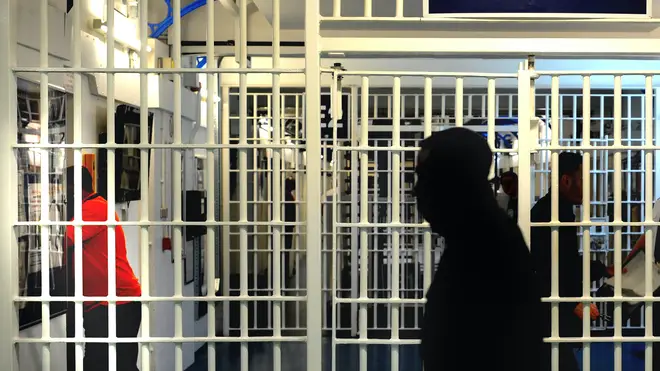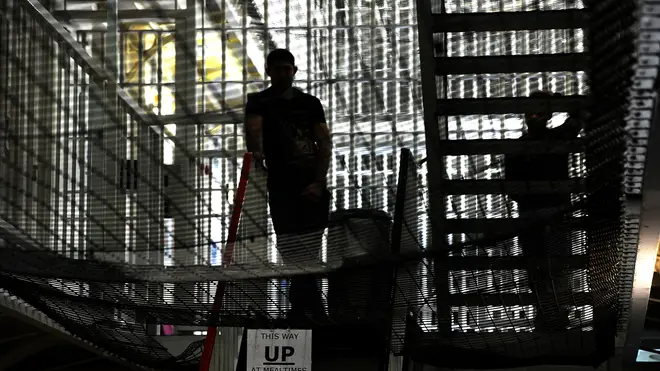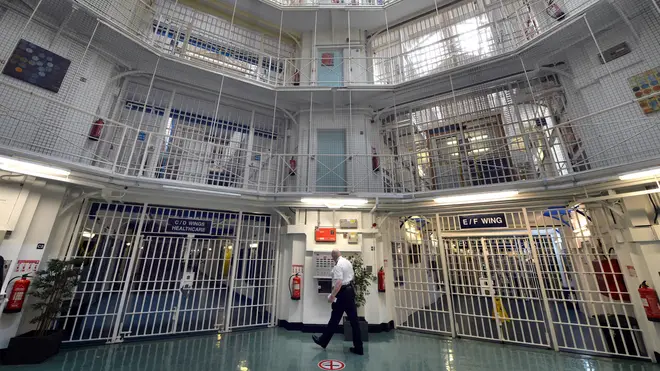
Nick Ferrari 7am - 10am
30 June 2021, 07:41 | Updated: 30 June 2021, 16:41

As many as three-quarters of children from London held on remand in prison are black, LBC can reveal.
Children on remand have not been convicted of any crime. Instead, a judge or a magistrate has decided that they must await their trial in prison.
There, potentially vulnerable, even innocent children can be exposed to hardship, and to hardened criminals.
And figures seen exclusively by LBC show that in February this year, 74% of the children from London on remand were black.
Read more: Sgt Matt Ratana - Man, 23, charged with murder of police officer
An even higher percentage, 88%, or nearly 9 out of 10 children were from black or other minority ethnic backgrounds.
The figures, released under the Freedom of Information Act to the charity Transform Justice, also show that for large parts of last year, the figures remained as high as 90%.
Although the number of black children rose markedly from around 60% for most of last year to 74% by February.

These numbers are hugely disproportionate, given that the black population of London is around 13%, according to Greater London Assembly data from 2016.
The black and minority ethnic population of London as a whole is thought to be around 44%.
But even if we account for the fact that the justice system often has disproportionate outcomes for ethnic minorities, our findings are still striking.
The figures for black and minority ethnic children on remand in London are also much higher than in England and Wales as a whole, where the figure last year stood at 57%, and just 33% for black children alone.
Read more: Sterling and Kane the heroes as England beat Germany 2-0 at Wembley
Read more: Serena Williams retires from Wimbledon after suffering ankle injury
Director of Transform Justice, Penelope Gibbs, said: “I think it’s shocking, and we should remain shocked by these kinds of things.
It’s probably the highest disproportionality rate that I’ve seen in the whole of the criminal justice system. We’re talking about children who have not been convicted of a crime, and may never be convicted.”

As to what might be driving this level of disproportionality, Labour’s Shadow Justice Secretary David Lammy blames a failure to follow up on the recommendations of his 2017 Lammy Review, commissioned by David Cameron to look into the issues with race in the justice system.
Describing our findings as “appalling and extreme”, Mr Lammy said: “The government has not implemented my recommendations, they’ve been half-assed at best.
Read more: How LBC highlighted the Covid bubble issue in schools
Of the 35 recommendations I made, they’ve implemented about 6 or 8 in full, and the situation has got worse since I did my review, as this story underlines.”
Another possible factor could be the types of crime children are charged with. The more serious the crime, the more likely a person is to be remanded. So if more black children are being charged with murder or attempted murder for instance, you might expect more to be remanded.
Or it could be more insidious. Courts could be for some reason treating black and minority ethnic children as less worthy of release on bail. One major problem is lack of data from magistrates courts, which was a key finding of the Lammy Review in 2017.
A spokesperson for the Mayor of London Sadiq Khan said: “These worrying figures highlight the continued concern that many people – particularly young people – from Black, Asian and minority ethnic backgrounds are not being treated fairly in the criminal justice system. It’s vital that this unfairness is tackled head on.
"The Mayor is committed to tackling race disproportionality throughout the justice system and he has launched a Youth Justice Action Plan in response to the overrepresentation of children from Black, Asian and minority ethnic backgrounds in London’s youth justice service.”
A spokesperson for the Ministry of Justice said: “While the number of black and ethnic minority children entering the youth justice system for the first time has fallen by 76% since December 2009 – we know we must do more to tackle the deep-rooted causes of over-representation.
“We are making changes through the Police, Crime, Sentencing and Courts Bill to tighten the tests courts use to remand children to custody and we are reviewing race disparity in the youth justice system.”